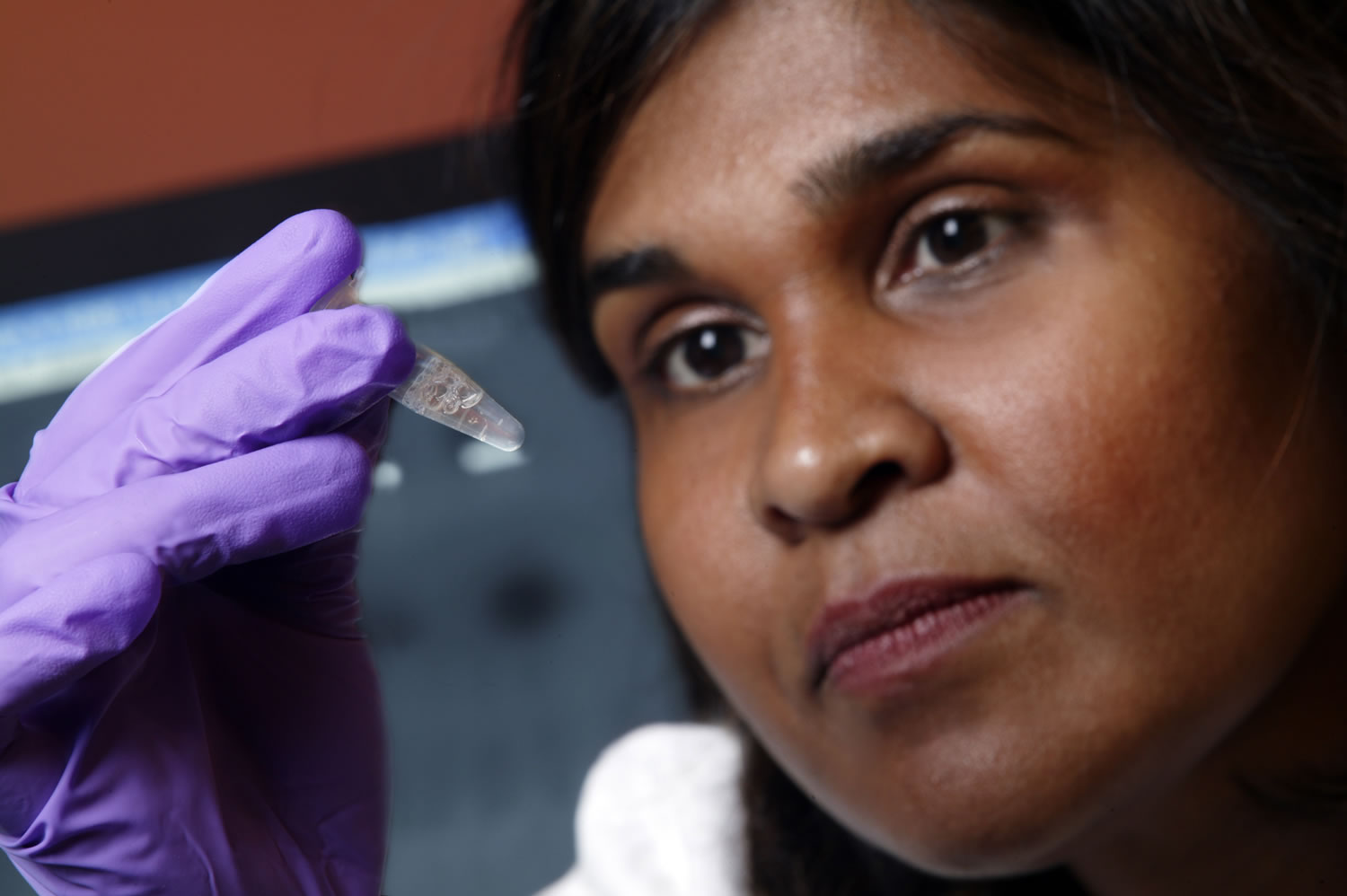ATLANTA — Nearly 200 U.S. mothers this year will learn that their newborns are HIV-positive and that they will need a steady dose of antiretroviral medicines most likely for the rest of their lives.
Stopping those medications, doctors say, will lead to certain illness and not, despite one recently reported case, to a cure.
“We know from research that the vast majority of infected children and adults, if they stop their treatments, they are going to get sick and usually very rapidly,” said Dr. Jeffrey Lennox, a professor of infectious disease at Emory University and leader of Emory’s HIV clinical trials unit.
News that an HIV-infected baby, born in rural Mississippi, had been cured dominated the talks early last week at the Conference on Retroviruses and Opportunistic Infections in Atlanta.
If confirmed, the infant would be only the second well-documented case of a cure in the world. The first was Timothy Brown, a middle-aged leukemia patient who received a bone-marrow transplant from a donor who was genetically resistant to HIV infection. He became known as the Berlin patient.
Doctors who treated the Mississippi infant believe the case is proof that HIV can be cured if they are able to replicate the case. Others, including Lennox, aren’t convinced.
Now 21/2, the toddler was born prematurely after the mother arrived at a rural hospital in the fall of 2010 without ever receiving prenatal care or any knowledge she was HIV-positive.
When a test indicated she might be infected, doctors transferred the baby to the University of Mississippi Medical Center, where the infant was tested and given a three-drug regimen, then the standard care.
After a month of treatments, the virus levels had not only dropped but were undetectable. That remained true 18 months after the mother stopped treatment.
Lennox and Dr. Rana Chakraborty, chairman of the committee on Pediatric AIDS for the American Academy of Pediatrics and the medical director for the family and youth clinic at Grady Hospital’s infectious disease program, said the infant’s story is an “incredibly unusual” case.
Lennox said there may be something to be learned from it, but the case has no implications for the vast majority of HIV-infected people in the U.S. at the moment.
“It’s very early in the case, so there is still a lot to be studied, including what led to the child being cleared of the HIV infection,” he said. “Personally, I’m a little skeptical. You have to follow someone for years before they can be declared cured and they’ve been following this child for only a few months.” Salina Cranor, a spokesperson for the Centers for Disease Control and Prevention, said the agency began recommending routine HIV screening of pregnant women in 1995, following research findings that HIV medications significantly reduce the risk of transmission from HIV-infected pregnant women to their infants.
As a result, she said, there has been a dramatic decline in the number of babies born with HIV, from a peak of 1,650 in 1991 to fewer than 200 per year today.
Chakraborty praised Dr. Deborah Persaud, the lead author of the report on the baby, and said he is delighted for the child and its mother. But he believes the case is an “outlier” and that more research needs to be done.
He said, “It’s very difficult to make any generalization about one case, especially when we don’t know the mechanism for clearing the virus.” In the meantime, he said, all pregnant women should be screened in the first trimester of pregnancy and again in the third trimester, and all HIV-infected individuals should take antiretroviral medication as recommended by their physicians.
If pregnant and HIV-infected, Chakraborty recommends discussing your options with your obstetrician and ask your baby’s pediatrician about ways to prevent transmission of the virus.
“If they are found to be HIV-positive, they should take life-saving antiretroviral medicine which will not only be good for their health but also protect their unborn child,” he said.
Lennox said there are treatments available that will suppress the virus in over 90 percent of adults and children and keep it suppressed for decades. For instance, he said that there are 100 women on average who are HIV-infected and give birth at Grady. Less than one-half percent of those children become infected.
“That’s how effective the treatment is when given to the mother during pregnancy and for a short period of time to the child following birth,” Lennox said. “In the last seven years, we’ve gone from one out of every five babies born HIV-infected to less than one percent.
“The treatments are incredible. It’s just that patients have to take them every day for decades until we have a real cure. That’s the hard part.”



